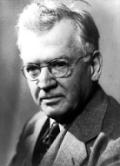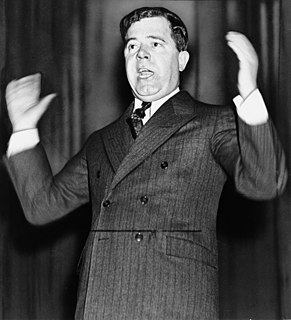A Quote by Buenaventura Durruti
No government fights fascism to destroy it. When the bourgeoisie sees that power is slipping out of its hands, it brings up fascism to hold onto their privileges.
Quote Topics
Related Quotes
The difference between [socialism and fascism] is superficial and purely formal, but it is significant psychologically: it brings the authoritarian nature of a planned economy crudely into the open. The main characteristic of socialism (and of communism) is public ownership of the means of production, and, therefore, the abolition of private property. The right to property is the right of use and disposal. Under fascism, men retain the semblance or pretense of private property, but the government holds total power over its use and disposal.
As political theorist Michael Parenti points out, historians often overlook Fascism's economic agenda--the partnership between Big Capital and Big Government--in their analysis of its authoritarian social program. Indeed, according to Bertram Gross in his startlingly prescient Friendly Fascism (1980), it is possible to achieve fascist goals within an ostensibly democratic society.
The film [the white Ribbon] does try to use German Fascism as an example, but not specifically Fascism... the results of German Fascism. It shows how people are prepared or indoctrinated for an ideology... people who are already in a state of repression who have been humiliated by society and who clasp at a straw that's offered to them. And how that's then developed into a form of indoctrination.
To know what Fascism really is we must first of all know what it is we are fighting, what the Fascist regimes really are and do, who puts up the money and backs Fascism in every country, and who owns the nations under such regimes, and why the natives of all Fascist countries must be driven into harder work, less money, reduced standards of living, poverty and desperation so that the men and corporations who found, subsidize and own Fascism can grow unbelievably rich.
I describe what is happening as 'food fascism' because this system can only survive through totalitarian control. With patents on seed, an illegitimate legal system is manipulated to create seed monopolies. Seed laws that require uniformity - which criminalize diversity and the use of open-pollinated seeds - are fascist in nature. Suing farmers after contaminating their crops, [...] is another aspect of this fascism. Pseudo-hygiene laws that criminalize local, artisanal food are food fascism. And attacks on scientists and the silencing of independent research [...] are examples of knowledge fascism.










































